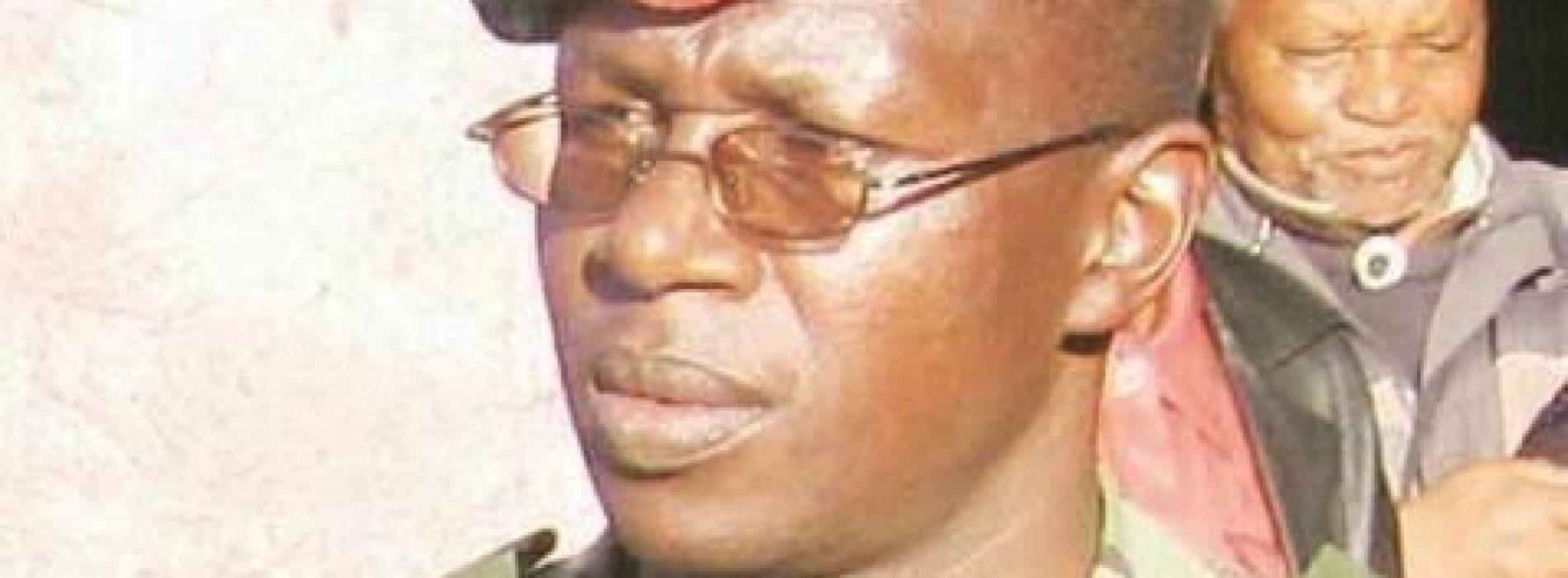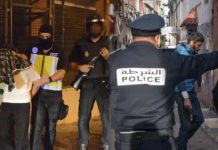Africa-Press – Lesotho. ON June 20, 1979 Maile Mosisili was born in Maseru. On the February 11, 2002 our brother, Maile, was shot at around 11pm. The shooting happened at or near the present day High Commission of the Republic of South Africa or somewhere thereabouts.
The bullet entered his back and exited through his left breast. Our brother met his untimely death at Queen Elizabeth II Hospital in Maseru where he had been rushed.
It is important to note here that Maile Mosisili was alive and talking when he was picked up from the scene of the shooting and taken to the hospital by members of the Lesotho Mounted Police Service (LMPS).
It is difficult to believe that he did not identify his assailant(s) to the people who ferried him to hospital. Our brother’s death was noted under Occurrence Book no.247/02/02 and a case of murder investigated under R.
C. I 41/02/02, at Maseru Central Charge Office. The lead investigator was one Inspector Sello Mosili. The investigation led to the arrest of four suspects: Lesoli Maphate, Rets’elisitsoe Lits’iba, Second Lieutenant ‘Mole Khumalo and Paka Mahao.
Maphate was arrested, allegedly, on the evidence of various witnesses who put him on the scene of the shooting. There were claims that he had made a veiled threat against the witnesses who put him in the vicinity of the shooting.
His initial application for bail was denied and he was remanded in custody. He was subsequently released due to the state’s failure and/or delay in indicting him.
Lits’iba was arrested, allegedly, on the evidence of Maphate. Maphate is alleged to have pointed at Lits’iba as the person who fired the shot that killed our brother.
Maphate allegedly claimed that Lits’iba enlisted his assistance in the killing. Lits’iba was released under circumstances that are, to date, inexplicable.
Second Lieutenant Khumalo, then a member of the Lesotho Defence Force (LDF), was arrested on the testimonies of various witnesses who claimed he allegedly made death threats to our brother.
Khumalo was also alleged to have been at the scene of the shooting. His bail application was granted despite the State’s opposition. Paka Mahao, a member of the Lesotho Defence Force (LDF), was arrested allegedly on the evidence of Khumalo.
Mahao’s bail application was initially opposed by the prosecution. Later the prosecution dropped its opposition and he was granted bail. The circumstances around the withdrawal of the opposition to the bail application remain unclear.
A day after the death of our brother the Government of the Kingdom of Lesotho released a statement which read in part: “Sechaba se kopjoa ke hona ho khoba mats’oafo, le hore se se lumelle ketso ena e soto ho se ferekanya, etsoe letsoho la molao le lokela ho fuoa sebaka sa ho sebetsa.
”
It has been almost fifteen (15) years since the brutal, unforgivable and barbaric killing of our brother. To this day there has been no person who has been convicted of Maile’s murder.
Worse still, there is no suspect in custody, leading to the uncomfortable apprehension that investigations into our brother’s murder have been put on the back burner.
We should mention that in February 2002, as is the case today, our father, Ntate Pakalitha Bethuel Mosisili, was Prime Minister of the Kingdom of Lesotho.
On January 27, 1968, Maaparankoe Mahao was born in Thaba Tseka. On June 25, 2015, Mahao was shot, multiple times at or near Mokema. He was then transported, according to reports, alive to Makoanyane Military Hospital by members of the Lesotho Defence Force (LDF).
He died at the hospital due to wounds “caused by high-velocity military type weapons”, according to a post-mortem report. The report states that his injuries were “predominantly situated on the right side of the body, with one of the projectiles (bullets) having deeply penetrated the chest structures and right lung”.
At the instance of the Government of the Kingdom of Lesotho, SADC instituted a Commission of Inquiry led by Justice Mpaphi Phumaphi. The Terms of Reference (ToR) from the SADC Double Troika, and domesticated by the Lesotho Government through Legal Notice No. 75 of 2015 as amended by Legal Notice No. 88 of 2015, inter alia provided that it should: “Investigate the immediate circumstances that led to the shooting of Brigadier Mahao”.
The findings of the commission are now a matter of public record. The commission has said his death should be investigated and those responsible be held accountable. Investigations into Mahao’s death have to date been inconclusive, in that, they are yet to lead to the arrest of any suspects.
There have been allegations that the LDF is refusing to give the LMPS evidence which may be pivotal in the investigations leading to the establishment of the circumstances surrounding Mahao’s shooting.
The Lesotho Government says it has established a Taskforce comprising of various members of the country’s security institutions to assist the LMPS in the investigations and have made sufficient resources available.
It is now more than one and half years since the fatal shooting of Mahao. The Kingdom of Lesotho has a predominantly Christian population. This religion is primarily guided by the Bible, which in both the Book of Exodus 20 and the Book of Deuteronomy 5, contain the ‘Ten Commandments’, the Lord made.
In Exodus 20:13, the commandment is “Do not commit murder”. That commandment is repeated in Deuteronomy 5:17. In the Kingdom of Lesotho Constitution of 1993, as amended, Article 5(1), states that “Every human being has an inherent right to life.
No one shall be arbitrarily deprived of his life”. Article 5(1) must however be read with Article 5(2) of the Constitution. Various legislative instruments exist to amplify the moral, religious and legal obligations that we as a nation subscribe to.
Further, Article 4(1) (o) of the Constitution provides for “the right to equality before the law and the equal protection of the law”. It is in this context that we raise and profile the deaths of both Maile Mosisili and Maaparankoe Mahao.
While it is accepted that we are diverse in our moralities and jurisprudence, it comes as an uncomfortable surprise how the international community deals with these two similar cases.
Probably in some countries the equality of persons and sanctity of human life is not recognised as it is in the Kingdom of Lesotho. Our international partners have shown a very partisan approach in dealing with matters that refer to the sanctity of human life in Lesotho.
They have gone to the extent of making unveiled threats to the Kingdom of Lesotho. The United States has threatened to withdraw Agoa, a preferential trade agreement whose cancellation would result in the loss of jobs for thousands of our brethren.
The profiling of alleged crimes, in our belief, should be made in a logical, nonpartisan manner. It is unacceptable to mount the proverbial high horse when you do not have the moral authority to do so.
A peacock looks a beautiful bird but we should not forget to look at its feet. Regimes, especially those exiting office, need to show respect for the sovereignty of State and the rule of law as it applies in various countries.
Disrespect of basic ethics, sows feelings within our populace which disrupts the peace we hold dear as a people. To conclude, it is apparent that institutions of the Lesotho Government are still too weak to conduct proper investigations. They are not insulated from wanton politicisation.
Instead of assisting the democratic State to strengthen these weak institutions the international community bandwagon with those who are inimical to proper investigations and are premised to present the above cases as if they were different when they are strikingly similar.
This attitude has militated against proper investigations of these serious cases. Consequently, these cases, more especially the Maaparankoe Mahao case, have been highly politicised to the extent that even the international community has become a victim of the politicisation.
Maile Mosisili’s case, though similar to that of Maaparankoe Mahao has not been given as a premium. The international community appears to lack the appetite for the case’s conclusion. The double standard is indeed worrying.






